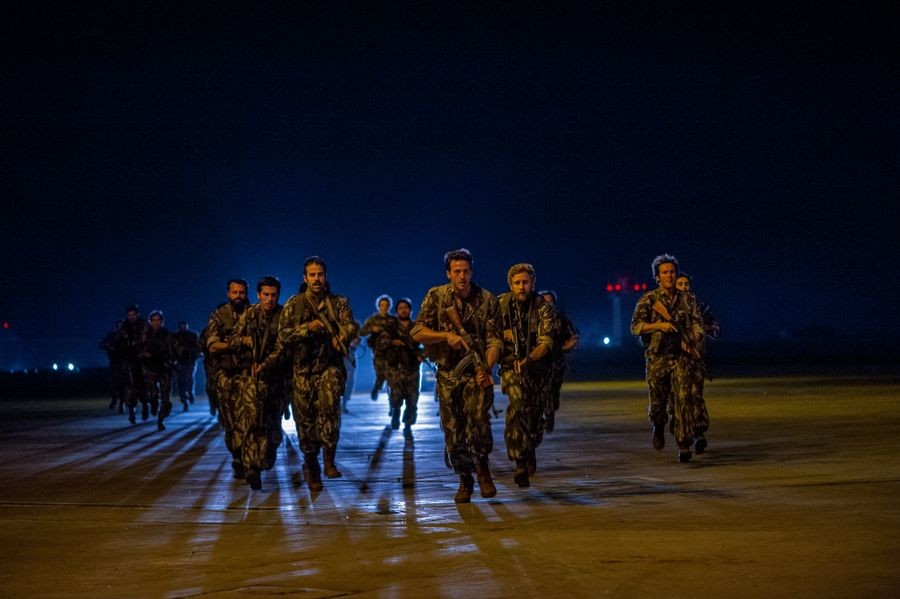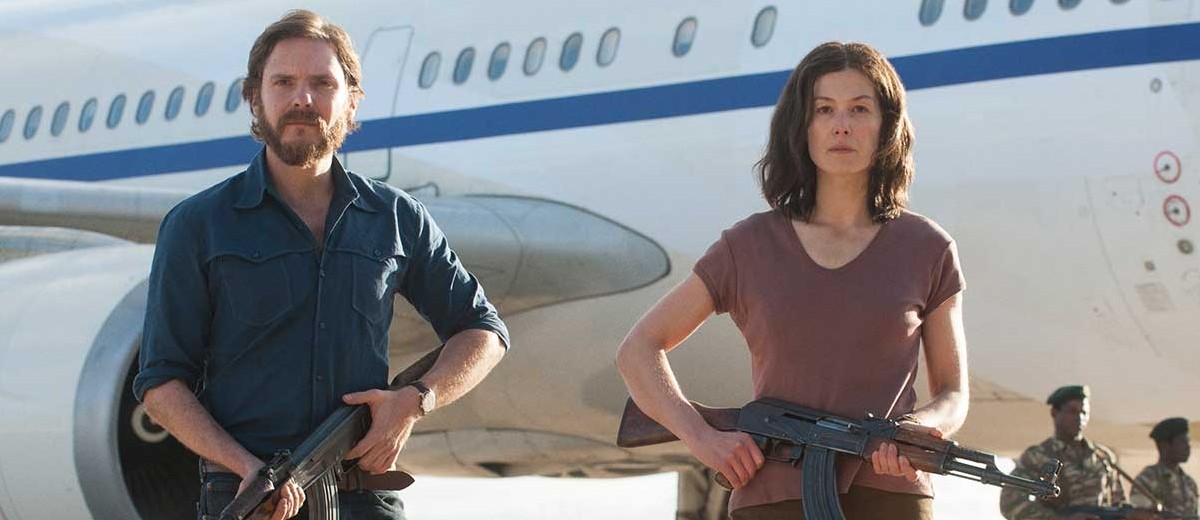It’s not often that you get to see the making of a Mystery Science Theater 3000 episode in real time, but I feel confident that at some point a guy in a movie theater with a couple of robots is going to make fun of Seven Days In Entebbe.

Mossad commandos stroll casually into battle in Seven Days In Entebbe
This film, directed by José Padilha, is the fourth made about the June-July 1976 hijacking of an Air France plane by a combined force of Palestinian and German terrorists. The plane was flown from Athens, Greece to an airport in Entebbe, Uganda on the shores of Lake Victoria. There, the 254 passengers and crew were held hostage with the help of Idi Amin’s army. The terrorists demanded the release of prisoners from Israeli jails, but instead they all got bullets in the head from a force of Israeli commandos. All but one of the passengers were rescued in the daring raid, and the men behind it—Prime Minister Yitzhak Rabin and Defense Minister Shimon Peres—became national heroes. Even today in Israel, the events of that summer have repercussions: The only Israeli casualty was the brother of current Israeli PM Benjamin Netanyahu.

Regret-filled passengers file from the plane.
The first of Seven Days In Entebbe’s many faults lies in its attempts to tell all sides of the story at once, and failing in every respect. Rosamund Pike and Daniel Brul play Brigitte Kuhlmann and Wilfred Bose, a pair of radical Red Army guerrillas who led the mission. Kuhlmann and Bose were the last of the breed of militant leftists who grew out of the 1960s. Their comrades in the infamous Badher-Meinhof group were all dead or in prison, and since they were stuck in a Libyan training camp with no prospect of returning home alive, the hijacking was an act of desperation.

Daniel Bruhl and Rosamund Pike hijack a plane because they have nothing better to do.
The hijacking goes smoothly enough, but the passengers, all decked out for the 1970s, appear to have been imported directly from an Airport movie. The self-parody is completed with Denis Menochet as the no nonsense flight engineer, who would have been played by George Kennedy if this had really been 1976. He gets great lines like “A plumber is worth five revolutionaries!”
On the other side is the Israeli government, led by Lior Ashkenazi as Rabin and Eddie Marsan as Peres. The pair of politicians leave no cigarette unsmoked and no brow un-furrowed, but at no time are they believable human beings. Even worse is the shoddy looking defense ministry headquarters, which looks like a 1960s-era Doctor Who set where everyone tells each other what they already know, unconvincingly. Most pointless of all is a subplot where a young commando played by Ben Schnetzer has to miss his girlfriend’s godawful modern dance performance because he’s off rescuing hostages. The only person who looks like he’s having any fun in the entire movie is Game of Thrones vet Nonso Anozie, and I suspect that’s because his portrayal of Idi Amin is secretly a Donald Trump impersonation.
Seven Days In Entebbe jumps out in front in the race for the most pointless (least pointed?) film of the year so far. Padilha is an acclaimed action director who somehow forgot how to film a good action scene since his uneven Robocop remake. His film failed to make me care about the passengers, the hijackers, the decision makers, or the soldiers. The only question is, why would anyone pay good money to remake a Charles Bronson TV movie from the 1970s, and do it so badly at that? For that, I have no answers. But one day, someone’s going to thank them for the lulz.
